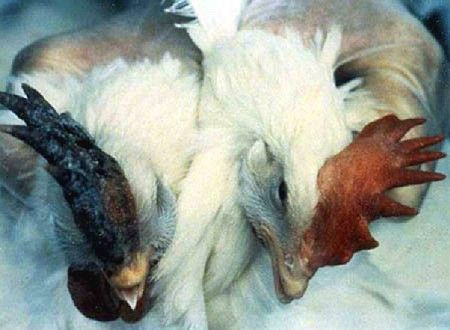H7N9 Bird Flu Hits Beijing, As CDC Rushes Vaccine Development

The new H7N9 bird flu has infected 43 people in China and killed 11 during the past two months, researchers said Thursday in the New England Journal of Medicine.
The U.S. Centers for Disease Control and Prevention in Atlanta received a sample of the H7N9 influenza A virus from Chinese public health officials Thursday and continue to rush development of a new vaccine, though vaccines for similar influenza strains have failed to evince much of an immunological response in humans.
Hindu News and media outlets around the world reported the worrisome news following the report. "It is possible that the severely ill patients represent the tip of the iceberg," wrote Drs. Timothy Uyeki and Nancy Cox, of the CDC. The researchers said the disease strain seemed better adapted than previous iterations to infecting humans and other mammals, though the disease does not spread person-to-person.
Though no one has yet tested positive for the disease in the United States and elsewhere outside of China, the researchers wrote that the new strain "raises many urgent questions and global public health concerns," given the propensity for disease now to spread rapidly around an increasingly interconnected human world.
On Thursday, Chinese officials confirmed the first case of H7N9 bird flu in Beijing: a 7-year-old girl whose parents whork in the poultry industry.



























